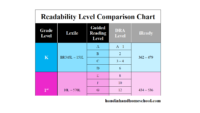Special needs is a catch-all phrase used to describe a wide variety of students and their educational needs. Not all children who receive special education have a cognitive disability. Some special needs children, referred to as twice exceptional possess very high intelligence. Their medical or physical disabilities, however require that they need special assistance with certain learning or life skills.
This chart breaks down the general effect various disabilities have on intelligence. Just because a child has a label, such as autism, or faces certain physical challenges, such as Cerebral Palsy, does not mean that they cannot learn.
How Disabilities Affect Intelligence
| Often Causes Low IQ | Does Not Usually Affect IQ |
|---|---|
|
|
Please follow and like us:
Last modified on July 18, 2020




